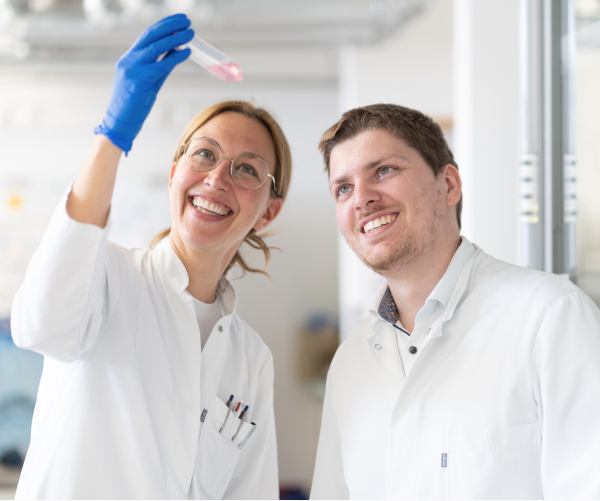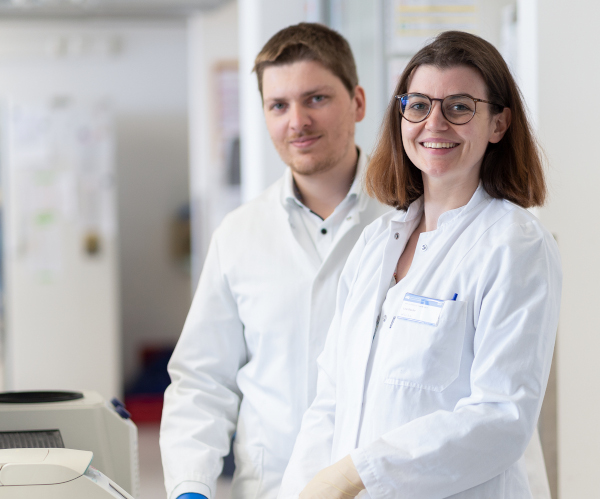für Innere Medizin II
direktion.med2@mri.tum.de
Unsere Arbeitsgruppe untersucht die epigenetische und transkriptionelle Regulation von anti-tumoralen NK-Zellen.


Team
Forschungsgebiet und Kollaborationen
Natürliche Killerzellen (NK-Zellen) sind Effektorzellen des angeborenen Immunsystems, die eine zentrale Rolle in der Tumorabwehr spielen. Durch ihre schnelle Zytotoxizität und hohe antitumorale Effizienz sind sie seit mehreren Jahren im Fokus immunologischer Tumortherapieansätze. Jedoch entwickeln Tumore eine Vielzahl an inhibitorischen Mechanismen, mit deren Hilfe sie lokal und systemisch die NK-Zell-Funktionalität hemmen.
Unsere Arbeitsgruppe untersucht die Auswirkungen des immunsuppressiven Tumormilieus auf NK-Zellen in gastrointestinalen Tumoren. Insbesondere wollen wir die Auswirkung der Tumorumgebung auf die transkriptionelle und epigenetische Regulierung von NK-Zellen entschlüsseln und somit NK-Zell-basierte Therapiestrategien verbessern.
Die AG Wiedemann ist Teil des Forschungsbereiches Gastrointestinale Immunologie.
Publikationen
Wissenschaftliche Arbeiten und Drittmittelförderung
Wissenschaftliche Arbeiten
Wir suchen nach einem engagierten, immunologisch begeisterten Postdoktoranden. Bewerbungen bitte per E-Mail.
Bei Interesse an einer naturwissenschaftlichen oder medizinischen Doktorarbeit freue ich mich über Ihre Bewerbung per E-mail.
Drittmittelförderung
Else-Kröner-Fresenius-Stiftung
Kommission für Klinische Forschung (KKF)
Deutsche Forschungsgemeinschaft (DFG, Emmy Noether Programm WI 4927/2-1)
TUM Seed Fund